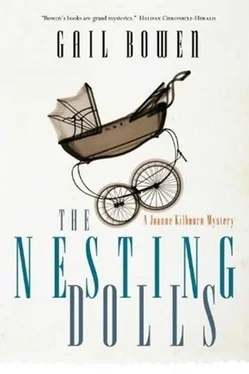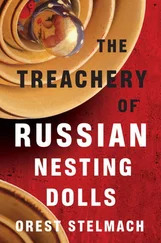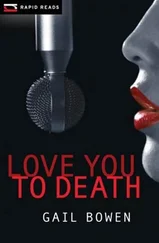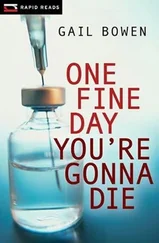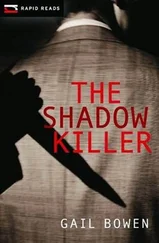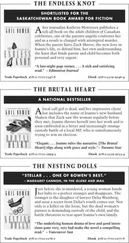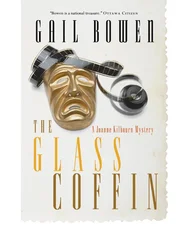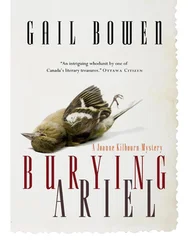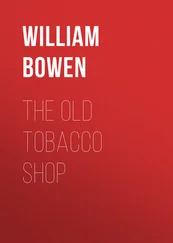Every Christmas time, I hand out candy canes with the exam papers and booklets. The students, even those in their graduating year, brighten at the reminder that there will be life after the misery of the next three hours, and the candy provides them with a necessary sugar boost when the first adrenalin rush subsides. That day, after the students had settled in and the rattle of candy paper and exam booklets ceased, calm fell over the room. For a few minutes, I watched the snow fall in fat lazy flakes outside the classroom window and let the peace wash over me. Then the Protestant work ethic kicked in, and I took out my laptop and set to work.
I was supervising a master’s thesis by that rarest of rare birds in our graduate school: a genuine right-winger. Christian Luzny’s thesis was that Canada’s best hope for surviving in the post-9/11 world was a stronger alliance with the United States, and his first draft had been sharp, lively, opinionated, and wildly one-sided. His bibliography was extensive and revealing: it did not include the name of a single scholar whose opinion deviated from Christian’s own. When he and I met to discuss his draft, I’d suggested that, at the very least, he should flush out a paper tiger to fight. Accordingly, the first thing I checked that afternoon was the bibliography. It was lengthy, and Christian had chosen some formidable opponents. Most were the usual suspects, but there was a Ph.D. whose surname caught my eye: Michaels, A.M. It seemed a long shot, but I googled Michaels, A.M. and came up with the scholar’s full name, Abigail Margaret Michaels, and the dates of her degrees and the universities from which she had received them. It all fit.
I googled her dissertation and found the abstract. Mercifully free of the bafflegab of academe, the abstract seemed frighteningly prescient: predicting that with a fragile economy, deep divisions about foreign and domestic policy and a spiralling debt load, America was a house of cards vulnerable to the slightest breeze. This dissertation argued that Canada offered a template that might be useful as America rebuilt after what Abby Michaels saw as its inevitable crash. On impulse, I ordered the dissertation through an interlibrary loan, then set to work on Christian’s thesis.
Christian argued with passion and abandon. Attempting to track his thought processes was like trying to follow a talented but erratic dancer – exhausting but exciting. The time passed quickly, and I was surprised when students began handing in their papers. After the last laggard left the room, I closed my laptop with that pleasant buzz of excitement that came when I knew I was going to be working with a gifted student. Judging by her abstract, it was a feeling that Abby Michaels, too, must have inspired many times in the men and women who taught her.
Zack was better at compartmentalizing than anyone I’d ever met. He had spent the day defending an alleged stalker who was accused of pursuing a perky local TV anchorwoman. It was an unpopular case; the media had been critical of Zack’s defence, and he had received some ugly calls at work and at home. More significantly, his case was going south. He’d put in a hard day, but that night we were taking our granddaughters to the ballet, and he greeted me at the door wearing his tux and a smile, martini in hand.
“Thank you for laying out my tux,” he said. “I was feeling like homemade shit; now I feel like homemade shit on the way to the ball.” He held out his martini to give me a sip.
“That is sublime,” I said. “Is there one of those for me?”
“You bet,” he said. “But I thought you might want to take off your boots first.”
I took another sip of his drink. “I owe you, and I’ll repay you by not asking you how your day was, and also by telling you that you look incredibly handsome.”
Zack gave me a nod of appreciation. “It’s a big night. Now fill me in on the time line again.”
“Mieka’s going to drop the girls here at 5:30 – then we’re off to the Hotel Saskatchewan for a fashionably early dinner. It’ll take us twenty minutes to get from the Hotel to the ballet; curtain’s at 7:30; by 7:31 we’ll be listening to Tchaikovsky and waiting for the mysterious Herr Drosselmeyer to appear at the Stahlbaums’ Christmas Eve party.” I hung my scarf and toque on top of my coat and aligned my boots. “I am now ready for my martini.”
“Follow me,” Zack said, and he turned his chair towards the kitchen. “So how was your day?”
“Productive.” I studied his face. Under the direct light in the kitchen, I could see the lines of fatigue. The addition of Delia’s case to his already heavy workload was taking its toll. “I spent the morning wrapping Christmas presents,” I said. “We are now one step closer to being ready for the big day.”
Zack extracted an olive from the jar on the counter. “What do you want for Christmas?” he said. “I’ve got a bunch of little stuff, but nothing with a wow factor.”
“I have the solution,” I said. “I called Stan Gardiner at the Point Store the other day. He says the ice on the lake is ‘punky’ – not good for skating. Since we’re all going to be at the cottage between Christmas and New Year’s, I thought we could get somebody to flood that space between the cottage and the hill. It’s perfect for a rink: it’s big, it’s flat, and you and I can stay inside where it’s warm and watch the kids.”
Zack chewed his olive and offered me the jar. “I’ll bet you’re the only woman in Canada who wants a skating rink for Christmas.” Suddenly his face split in a grin. “Do you remember Lee Sandison? The one with the much younger wife?”
“There seems to be an epidemic of much younger wives,” I said. “But I remember Missy. She has the only Birkin bag I’ve ever seen in Regina.”
“Well, she earned it,” Zack said. “Lee told me he asked her for a blow job and she said she’d give him one if he bought her a Birkin bag.”
“Isn’t that a little high?” I said. “Birkins start at $7,000.”
“According to Lee, Missy prides herself on being ‘fastidious.’ ”
“Fastidious, but flexible,” I said. “Well, good for them. Everyone deserves a special moment. I hope Lee knows that Birkin bags are reputed to last forever.”
Zack grinned. “I’ll be sure to point that out next time I see him.”
I glanced at the clock. “Time to move along,” I said. “Mieka’s going to be here with the girls in twenty minutes, and I still have to get dressed.”
“Can I watch?”
“Isn’t that getting a little old?”
“Never.”
“Okay, you can watch, but it’s going to cost you a skating rink.”
The Hotel Saskatchewan is one of the grand hotels built by the nation-building Canadian Pacific Railway in the early part of the twentieth century. At the peak of construction, a thousand men were working shifts twenty-four hours a day, so that the young blades of Regina would have vaulted ceilings under which to waltz their belles and marble thresholds over which to carry them. The clientele today tends to be corporate, more interested in mergers than romance, and there are places in town where the food is cheaper and better. That said, for an evening of mid-winter enchantment, the Hotel Saskatchewan is the place to be, especially if you are six years old and four years old, as Madeleine and Lena were, respectively, on that starry December night.
From the moment the girls looked up at the towering wooden soldiers flanking the entrance and spied themselves in the floor-to-ceiling mirrors, they were captivated. The lobby held more charms: the frothy extravagances of the tree decorations were a reminder, if we needed one, that Christmas is the season when too much is not enough, and the chandeliers glittering in the dining rooms promised further delights. Best of all, there was the hotel’s gingerbread display. This year’s theme was an Alpine village with a real train that ran on a figure-eight track past candy-covered houses. Transcendent.
Читать дальше
